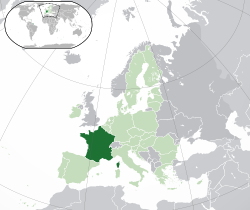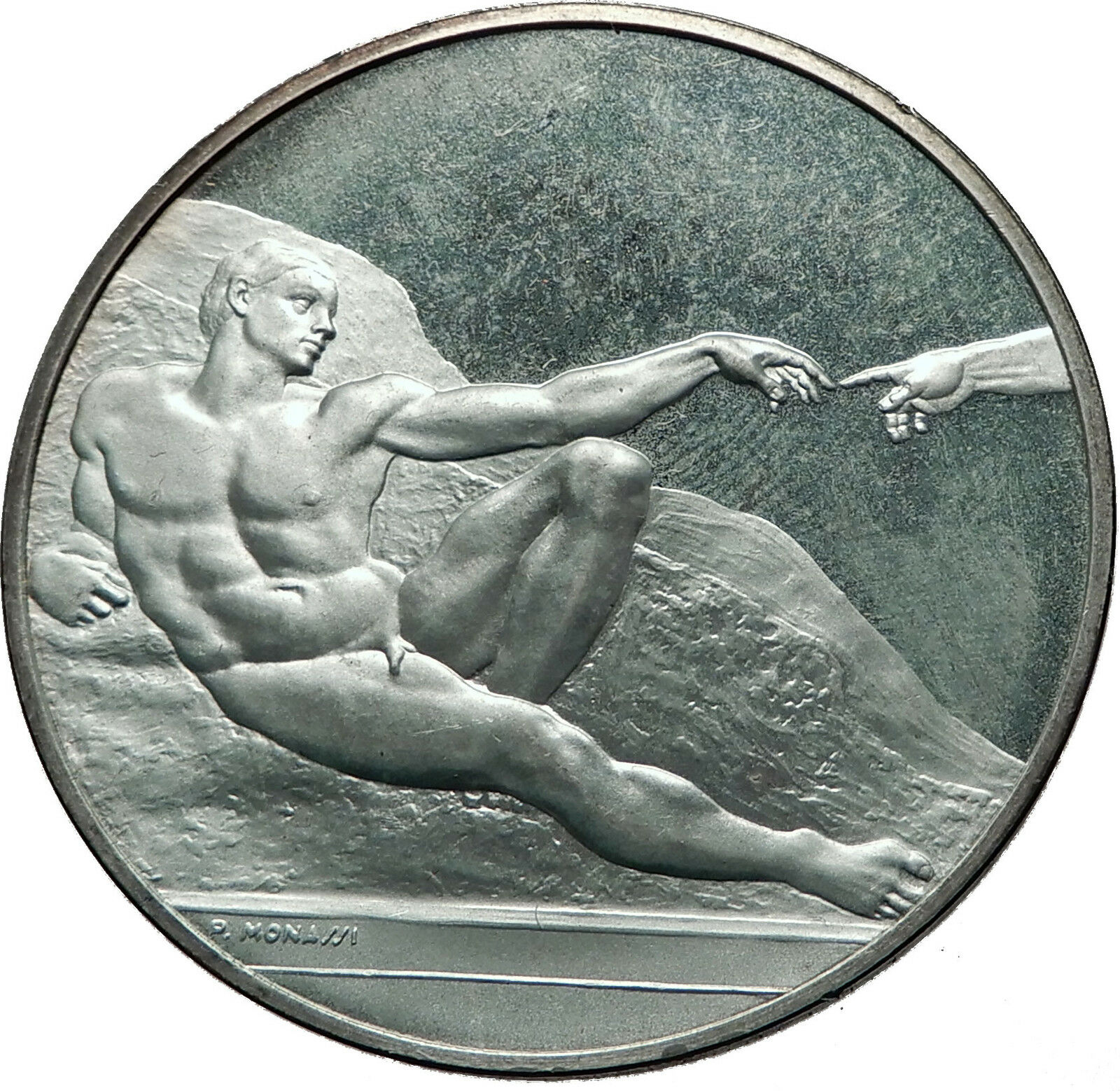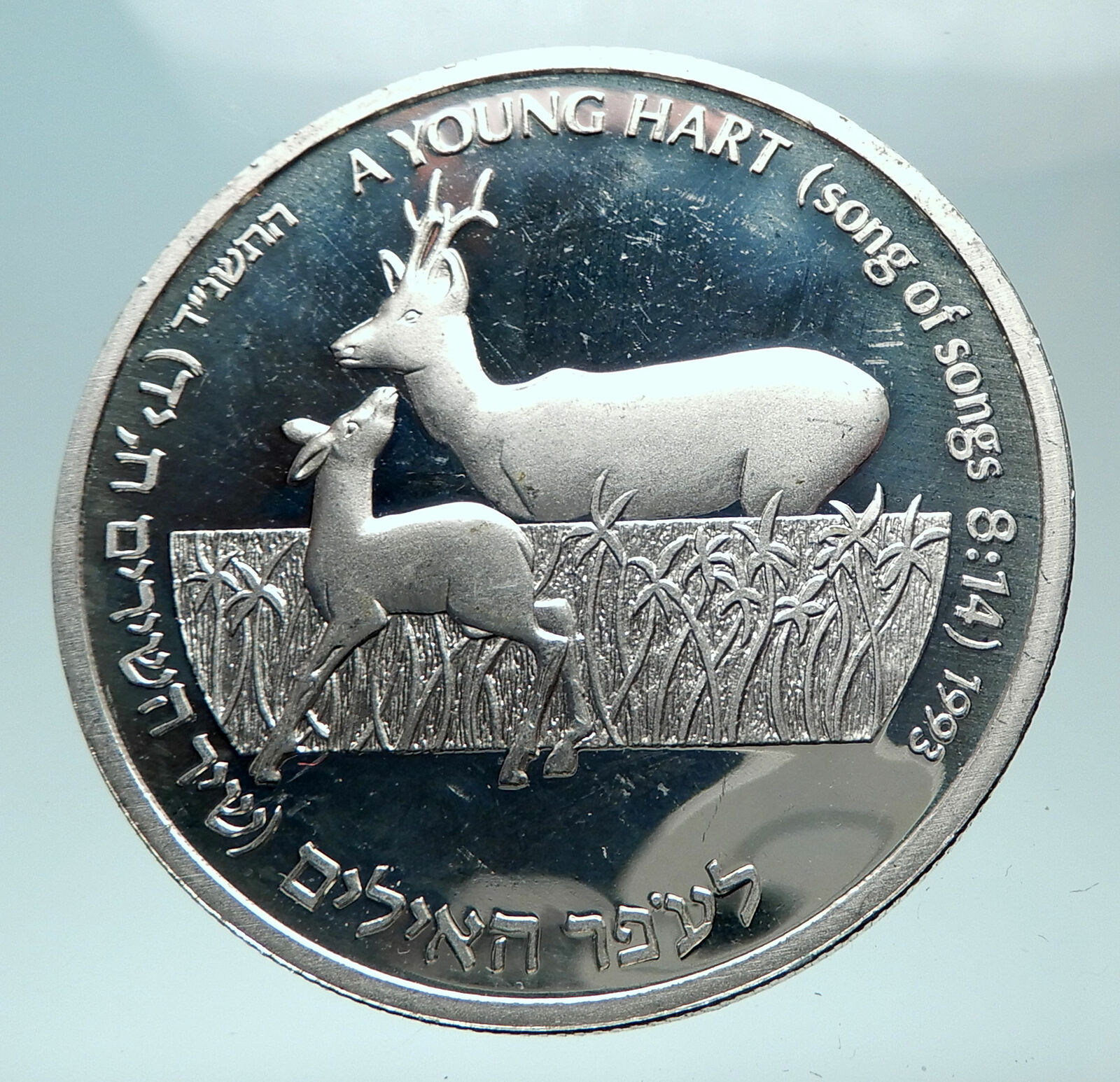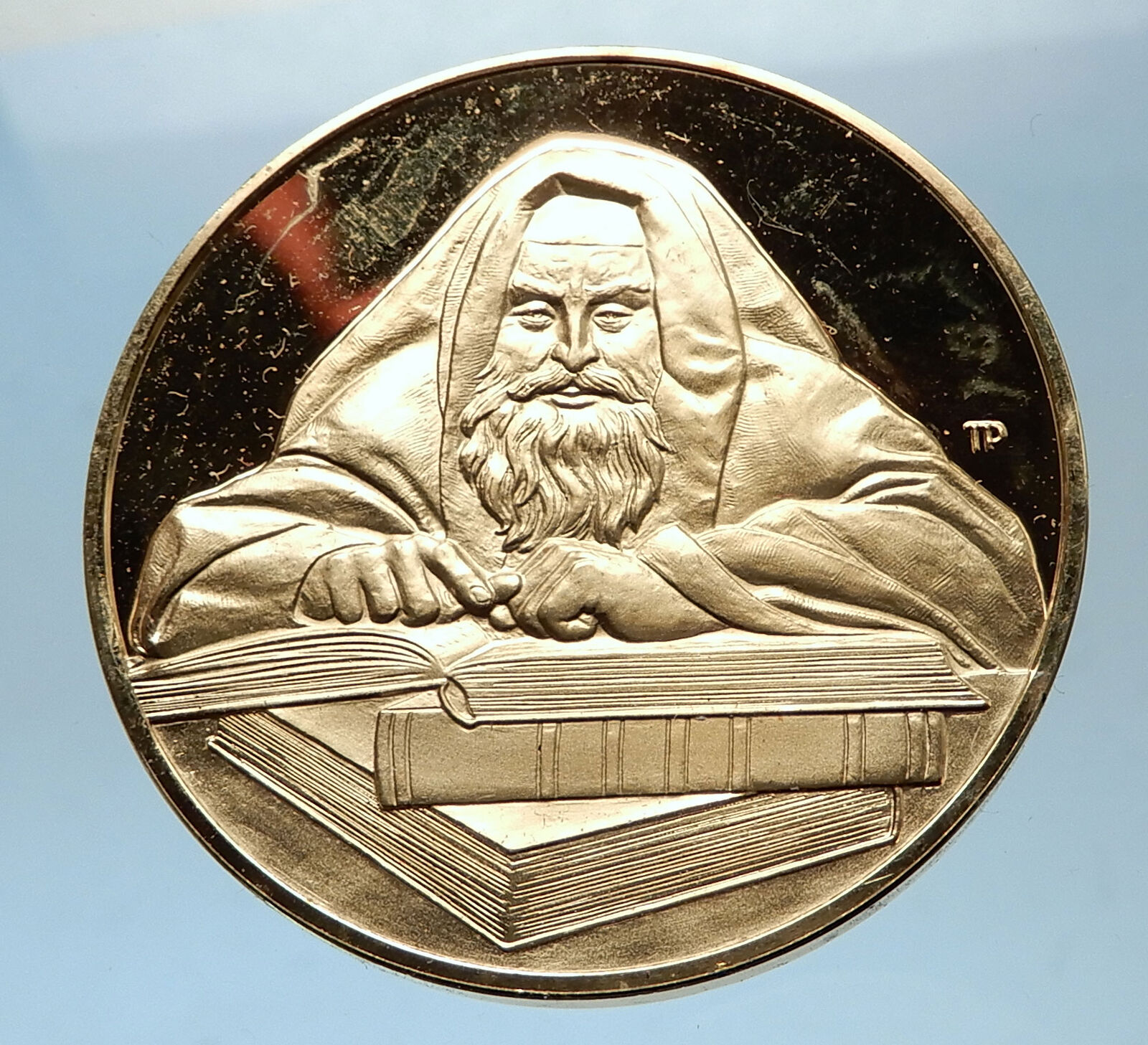|
France under Louis XVIII – King: 3 May 1814 – 20 March 1815
Poet François de Malherbe
1815 M Bronze Medal 39mm (36.34 grams)
Reference: Forrer V-II/208
Engraver: Jacques-Édouard Gatteaux
A MALHERBE NE A CAEN EN 1555 LA VILLE DE CAEN 1815, Malherbe facing left.
ENFIN MALHERBE VINT, Lyre with legend below surrounded by wreath.
Translation:
Finally Malherbe Arrived “in Caen”
You are bidding on the exact item pictured, provided with a Certificate of Authenticity and LifetimeGuarantee of Authenticity.
 François de Malherbe (1555 – 16 October 1628) was a French poet, critic, and translator. François de Malherbe (1555 – 16 October 1628) was a French poet, critic, and translator.
He was born in Le Locheur (near Caen, Normandie), to a family of standing, although the family’s pedigree did not satisfy the heralds in terms of its claims to nobility pre-16th century. Francois the poet was the eldest son of another François de Malherbe, conseiller du roi in the magistracy of Caen. He himself was elaborately educated at Caen, at Paris, at Heidelberg and at Basel. At the age of twenty-one, preferring arms to the gown, he entered the household of Henri d’Angoulême, the illegitimate son of Henry II, governor of Provence. He served this prince as secretary in Provence, and married there in 1581. It seems that he wrote verses at this period, but, to judge from a quotation of Tallemant des Réaux, they must have been very bad ones. His patron died when Malherbe was on a visit in his native province, and for a time he had no particular employment, though by some servile verses he obtained a considerable gift of money from Henry III, whom he afterwards libelled. He lived partly in Provence and partly in Normandy for many years after this event; but very little is known of his life during this period. His Larmes de Saint Pierre, imitated from Luigi Tansillo, appeared in 1587.
It was in 1600 that he presented to Maria de’ Medici an ode of welcome, the first of his remarkable poems. But four or five years more passed before his fortune, which had hitherto been indifferent, turned. He was presented by his countryman, the Cardinal Du Perron, to Henry IV; and, though that economical prince did not at first show any great eagerness to entertain the poet, he was at last summoned to court and endowed after one fashion or another. It is said that the pension promised him was not paid till the next reign. His father died in 1606, and he came into his inheritance.
From this time forward he lived at court, corresponding affectionately with his wife, but seeing her only twice in some twenty years. His old age was saddened by a great misfortune. His son, Marc Antoine, a young man of promise, died in a duel against Paul de Fortia de Piles. Malherbe suspected foul play and used his utmost influence to have the de Fortia and Jean Baptiste de Covet (de Fortia’s second in the duel) brought to justice. Malherbe died before the suit was decided; it is said in consequence of disease caught at the siege of La Rochelle, where he had gone to petition the king. Malherbe died in Paris, on October 16, 1628, at the age of seventy-three, only 15 months after his son.
The football team from Caen, France, Stade Malherbe de Caen, is named after him.
Malherbe exercised, or at least indicated the exercise of, a great and enduring effect upon French literature, though not exactly a wholly beneficial one. From the time of Malherbe dates the gradual development of the poetic rules of “Classicism” that would dominate for nearly two centuries until the Romantics. The critical and restraining tendency of Malherbe who preached greater technical perfection, and especially greater simplicity and purity in vocabulary and versification, was a sober correction to the luxuriant importation and innovation of Pierre de Ronsard and La Pléiade, but the lines of praise by Nicolas Boileau-Despréaux beginning Enfin Malherbe vint (“Finally Malherbe arrived”) are rendered only partially applicable by Boileau’s ignorance of older French poetry.
The personal character of Malherbe, whose writings demonstrate a bludgeon-like wit, was far from amiable; the good as well as bad side of Malherbe’s theory and practice is excellently described by his contemporary and rival Mathurin Régnier, who was animated against Malherbe, not merely by reason of his own devotion to Ronsard but because of Malherbe’s discourtesy towards Régnier’s uncle Philippe Desportes, whom the Norman poet had at first distinctly plagiarized.
Malherbe’s reforms helped to elaborate the kind of verse necessary for the classical tragedy, but his own poetical work is scanty in amount, and for the most part frigid and lacking inspiration. The beautiful Consolation a Duperier, in which occurs the famous line – Et, rose, elle a vécu ce que vivent les roses – the odes to Marie de’ Medici and to Louis XIII, are the best-remembered of his works.
His prose work is much more abundant, not less remarkable for care as to style and expression, and of greater positive value. It consists of some translations of Livy and Seneca, and of a very large number of interesting and admirably written letters, many of which are addressed to Peiresc, the man of science of whom Gassendi has left a delightful Latin life. It also contains a most curious commentary on Desportes, in which Malherbe’s minute and carping style of verbal criticism is displayed on the great scale.
Malherbe’s two most important disciples were François Maynard and Racan; Claude Favre de Vaugelas is credited with having purified French diction at about the same time.
 Louis XVIII (Louis Stanislas Xavier; 17 November 1755 – 16 September 1824), known as the Desired (French: le Désiré), King of France from 1814 to 1824, except for the Hundred Days in 1815. He spent twenty-three years in exile: during the French Revolution and the First French Empire (1791–1814), and during the Hundred Days. Louis XVIII (Louis Stanislas Xavier; 17 November 1755 – 16 September 1824), known as the Desired (French: le Désiré), King of France from 1814 to 1824, except for the Hundred Days in 1815. He spent twenty-three years in exile: during the French Revolution and the First French Empire (1791–1814), and during the Hundred Days.
Until his accession to the throne of France, he held the title of Count of Provence as brother of King Louis XVI. On 21 September 1792, the National Convention abolished the monarchy and deposed Louis XVI, who was later executed by guillotine. his young nephew Louis XVII died in prison in June 1795, the Count of Provence proclaimed himself (titular) king under the name Louis XVIII. Following the French Revolution and during the Napoleonic era, Louis XVIII lived in exile in Prussia, England, and Russia. the Sixth Coalition finally defeated Napoleon in 1814, Louis XVIII was placed in what he, and the French royalists, considered his rightful position. However, Napoleon escaped from his exile in Elba and restored his French Empire. Louis XVIII fled, and a Seventh Coalition declared war on the French Empire, defeated Napoleon again, and again restored Louis XVIII to the French throne.
Louis XVIII ruled as king for slightly less than a decade. The government of the Bourbon Restoration was a constitutional monarchy, unlike the Ancien Régime, which was absolutist. As a constitutional monarch, Louis XVIII’s royal prerogative was reduced substantially by the Charter of 1814, France’s new constitution. His return in 1815 led to a second wave of White Terror headed by the Ultra-royalist faction. The following year, Louis dissolved the unpopular parliament, referred to as the Chambre introuvable, giving rise to the liberal Doctrinaires. His reign was further marked by the formation of the Quintuple Alliance and a military intervention in Spain. Louis had no children, so upon his death the crown passed to his brother, Charles X. XVIII was the last French monarch to die while still reigning, as Charles X (1824–1830) abdicated and both Louis Philippe I (1830–1848) and Napoleon III (1852–1870) were deposed.
 France, officially the French Republic (French: République française), is a sovereign state comprising territory in western Europe and several overseas regions and territories. The European part of France, called Metropolitan France, extends from the Mediterranean Sea to the English Channel and the North Sea, and from the Rhine to the Atlantic Ocean. France spans 640,679 square kilometres (247,368 sq mi) and has a total population of 67 million. It is a unitary semi-presidential republic with the capital in Paris, the country’s largest city and main cultural and commercial centre. The Constitution of France establishes the state as secular and democratic, with its sovereignty derived from the people. France, officially the French Republic (French: République française), is a sovereign state comprising territory in western Europe and several overseas regions and territories. The European part of France, called Metropolitan France, extends from the Mediterranean Sea to the English Channel and the North Sea, and from the Rhine to the Atlantic Ocean. France spans 640,679 square kilometres (247,368 sq mi) and has a total population of 67 million. It is a unitary semi-presidential republic with the capital in Paris, the country’s largest city and main cultural and commercial centre. The Constitution of France establishes the state as secular and democratic, with its sovereignty derived from the people.

During the Iron Age, what is now Metropolitan France was inhabited by the Gauls, a Celtic people. The Gauls were conquered in 51 BC by the Roman Empire, which held Gaul until 486. The Gallo-Romans faced raids and migration from the Germanic Franks, who dominated the region for hundreds of years, eventually creating the medieval Kingdom of France. France emerged as a major European power in the Late Middle Ages, with its victory in the Hundred Years’ War (1337 to 1453) strengthening French state-building and paving the way for a future centralized absolute monarchy. During the Renaissance, France experienced a vast cultural development and established the beginning of a global colonial empire. The 16th century was dominated by religious civil wars between Catholics and Protestants (Huguenots).
 France became Europe’s dominant cultural, political, and military power under Louis XIV. French philosophers played a key role in the Age of Enlightenment during the 18th century. In 1778, France became the first and the main ally of the new United States in the American Revolutionary War. In the late 18th century, the absolute monarchy was overthrown in the French Revolution. Among its legacies was the Declaration of the Rights of Man and of the Citizen, one of the earliest documents on human rights, which expresses the nation’s ideals to this day. France became one of modern history’s earliest republics until Napoleon took power and launched the First French Empire in 1804. Fighting against a complex set of coalitions during the Napoleonic Wars, he dominated European affairs for over a decade and had a long-lasting impact on Western culture. Following the collapse of the Empire, France endured a tumultuous succession of governments: the monarchy was restored, it was replaced in 1830 by a constitutional monarchy, then briefly by a Second Republic, and then by a Second Empire, until a more lasting French Third Republic was established in 1870. By the 1905 law, France adopted a strict form of secularism, called laïcité, which has become an important federative principle in the modern French society. France became Europe’s dominant cultural, political, and military power under Louis XIV. French philosophers played a key role in the Age of Enlightenment during the 18th century. In 1778, France became the first and the main ally of the new United States in the American Revolutionary War. In the late 18th century, the absolute monarchy was overthrown in the French Revolution. Among its legacies was the Declaration of the Rights of Man and of the Citizen, one of the earliest documents on human rights, which expresses the nation’s ideals to this day. France became one of modern history’s earliest republics until Napoleon took power and launched the First French Empire in 1804. Fighting against a complex set of coalitions during the Napoleonic Wars, he dominated European affairs for over a decade and had a long-lasting impact on Western culture. Following the collapse of the Empire, France endured a tumultuous succession of governments: the monarchy was restored, it was replaced in 1830 by a constitutional monarchy, then briefly by a Second Republic, and then by a Second Empire, until a more lasting French Third Republic was established in 1870. By the 1905 law, France adopted a strict form of secularism, called laïcité, which has become an important federative principle in the modern French society.
France reached its territorial height during the 19th and early 20th centuries, when it ultimately possessed the second-largest colonial empire in the world. In World War I, France was one of the main winners as part of the Triple Entente alliance fighting against the Central Powers. France was also one of the Allied Powers in World War II, but came under occupation by the Axis Powers in 1940. Following liberation in 1944, a Fourth Republic was established and later dissolved in the course of the Algerian War. The Fifth Republic, led by Charles de Gaulle, was formed in 1958 and remains to this day. Following World War II, most of the empire became decolonized.
Throughout its long history, France has been a leading global center of culture, making significant contributions to art, science, and philosophy. It hosts Europe’s third-largest number of cultural UNESCO World Heritage Sites (after Italy and Spain) and receives around 83 million foreign tourists annually, the most of any country in the world. France remains a great power with significant cultural, economic, military, and political influence. It is a developed country with the world’s sixth-largest economy by nominal GDP and eight-largest by purchasing power parity. According to Credit Suisse, France is the fourth wealthiest nation in the world in terms of aggregate household wealth. It also possesses the world’s second-largest exclusive economic zone (EEZ), covering 11,035,000 square kilometres (4,261,000 sq mi).
French citizens enjoy a high standard of living, and the country performs well in international rankings of education, health care, life expectancy, civil liberties, and human development. France is a founding member of the United Nations, where it serves as one of the five permanent members of the UN Security Council. It is a member of the Group of 7, North Atlantic Treaty Organization (NATO), Organisation for Economic Co-operation and Development (OECD), the World Trade Organization (WTO), and La Francophonie. France is a founding and leading member state of the European Union (EU).
|





 François de Malherbe (1555 – 16 October 1628) was a French poet, critic, and translator.
François de Malherbe (1555 – 16 October 1628) was a French poet, critic, and translator. Louis XVIII (Louis Stanislas Xavier; 17 November 1755 – 16 September 1824), known as the Desired (French: le Désiré), King of France from 1814 to 1824, except for the Hundred Days in 1815. He spent twenty-three years in exile: during the French Revolution and the First French Empire (1791–1814), and during the Hundred Days.
Louis XVIII (Louis Stanislas Xavier; 17 November 1755 – 16 September 1824), known as the Desired (French: le Désiré), King of France from 1814 to 1824, except for the Hundred Days in 1815. He spent twenty-three years in exile: during the French Revolution and the First French Empire (1791–1814), and during the Hundred Days. France, officially the French Republic (French: République française), is a sovereign state comprising territory in western Europe and several overseas regions and territories. The European part of France, called Metropolitan France, extends from the Mediterranean Sea to the English Channel and the North Sea, and from the Rhine to the Atlantic Ocean. France spans 640,679 square kilometres (247,368 sq mi) and has a total population of 67 million. It is a unitary semi-presidential republic with the capital in Paris, the country’s largest city and main cultural and commercial centre. The Constitution of France establishes the state as secular and democratic, with its sovereignty derived from the people.
France, officially the French Republic (French: République française), is a sovereign state comprising territory in western Europe and several overseas regions and territories. The European part of France, called Metropolitan France, extends from the Mediterranean Sea to the English Channel and the North Sea, and from the Rhine to the Atlantic Ocean. France spans 640,679 square kilometres (247,368 sq mi) and has a total population of 67 million. It is a unitary semi-presidential republic with the capital in Paris, the country’s largest city and main cultural and commercial centre. The Constitution of France establishes the state as secular and democratic, with its sovereignty derived from the people.
 France became Europe’s dominant cultural, political, and military power under Louis XIV. French philosophers played a key role in the Age of Enlightenment during the 18th century. In 1778, France became the first and the main ally of the new United States in the American Revolutionary War. In the late 18th century, the absolute monarchy was overthrown in the French Revolution. Among its legacies was the Declaration of the Rights of Man and of the Citizen, one of the earliest documents on human rights, which expresses the nation’s ideals to this day. France became one of modern history’s earliest republics until Napoleon took power and launched the First French Empire in 1804. Fighting against a complex set of coalitions during the Napoleonic Wars, he dominated European affairs for over a decade and had a long-lasting impact on Western culture. Following the collapse of the Empire, France endured a tumultuous succession of governments: the monarchy was restored, it was replaced in 1830 by a constitutional monarchy, then briefly by a Second Republic, and then by a Second Empire, until a more lasting French Third Republic was established in 1870. By the 1905 law, France adopted a strict form of secularism, called laïcité, which has become an important federative principle in the modern French society.
France became Europe’s dominant cultural, political, and military power under Louis XIV. French philosophers played a key role in the Age of Enlightenment during the 18th century. In 1778, France became the first and the main ally of the new United States in the American Revolutionary War. In the late 18th century, the absolute monarchy was overthrown in the French Revolution. Among its legacies was the Declaration of the Rights of Man and of the Citizen, one of the earliest documents on human rights, which expresses the nation’s ideals to this day. France became one of modern history’s earliest republics until Napoleon took power and launched the First French Empire in 1804. Fighting against a complex set of coalitions during the Napoleonic Wars, he dominated European affairs for over a decade and had a long-lasting impact on Western culture. Following the collapse of the Empire, France endured a tumultuous succession of governments: the monarchy was restored, it was replaced in 1830 by a constitutional monarchy, then briefly by a Second Republic, and then by a Second Empire, until a more lasting French Third Republic was established in 1870. By the 1905 law, France adopted a strict form of secularism, called laïcité, which has become an important federative principle in the modern French society.




